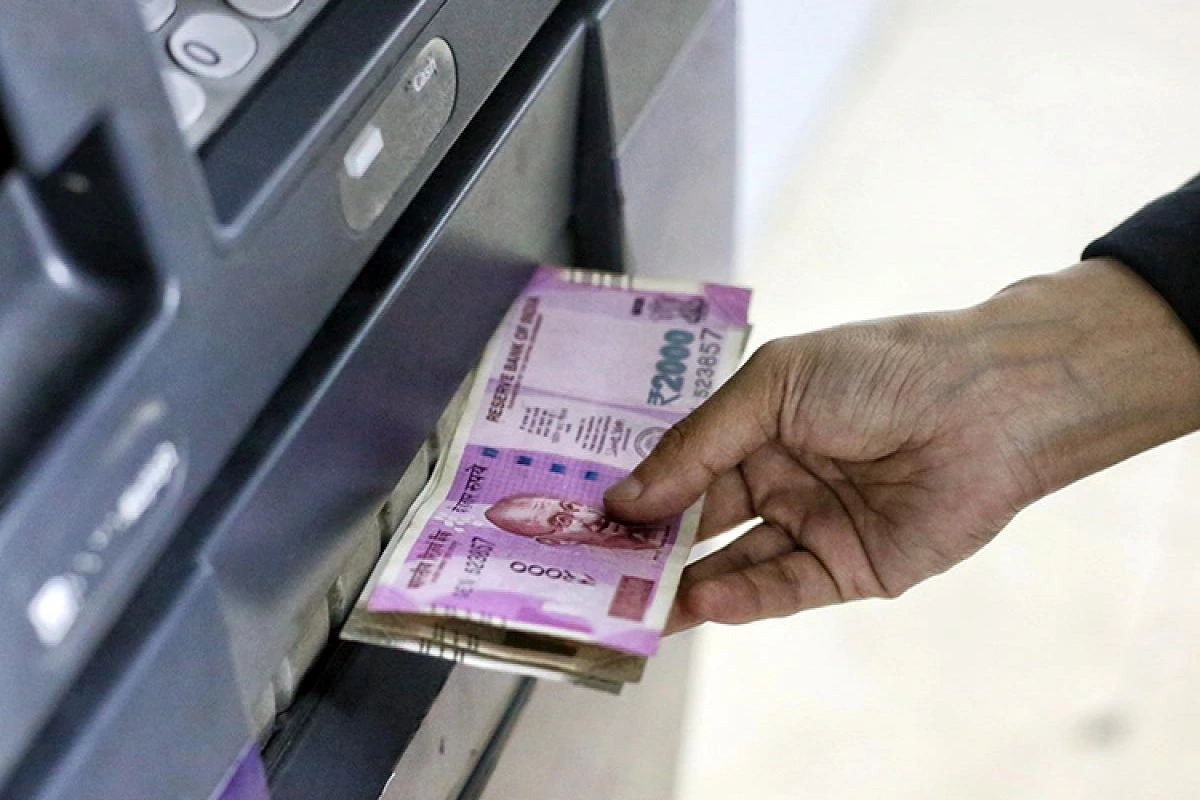
Rs 2000 banknotes in ATMs
The Parliament said that no instructions have been given to banks for filling or not filling Rs 2,000 notes in Automated Teller Machines (ATMs) as lenders make their own choice for loading cash vending machines.
As per the Annual Reports of the Reserve Bank of India (RBI), the total value of Rs 500 and Rs 2,000 denomination banknotes in circulation as of end-March 2017 and as of March-end 2022 was Rs 9.512 lakh crore and Rs 27.057 lakh crore, Union Finance Minister Nirmala Sitharaman said in a written reply in Lok Sabha.
FM Sitharaman on not filling of Rs 2,000 notes in ATMs
“No instructions have been given to banks for not filling Rs 2,000 notes in ATMs. Banks make their own assessment of the amount and denominational requirement for ATMs on the basis of past usage, consumer requirement, seasonal trend, etc,” she said.
Replying to another question, the finance minister said, the total amount of the central government debt/liabilities is estimated at about Rs 155.8 lakh crore (57.3 per cent of GDP) as on March 31, 2023.
Out of this, she said, external debt valued at the current exchange rate is estimated at Rs 7.03 lakh crore (2.6 per cent of GDP).
“Share of external debt is only about 4.5 per cent of total debt/liabilities of the central government and less than 3 per cent of GDP. External debt is mostly financed by multilateral and bilateral agencies at concessional rates. Therefore, the risk profile stands out as safe and prudent,” she said.
Also Read: Samsung Plans to Invest In Smart Manufacturing Capability in India
RBI and Govt. Collaboration
RBI in consultation with the government has announced various measures recently to diversify and expand the sources of forex funding to mitigate exchange rate volatility and global spillovers, she said.
It included, “fresh FCNR(B) and NRE deposits were exempted from the extant regulation on interest rates (i.e. interest rates shall not be higher than those offered by the banks on comparable domestic rupee term deposits) till October 31, 2022.”
The external commercial borrowing limit under the automatic route has been raised to USD 1.5 billion and the all-in-cost ceiling has been raised by 100 basis points in select cases up to December 31, 2022, she said.
In order to promote the growth of exports from India and to support the increasing interest of the global trading community in the Indian rupee, she said, RBI has put in place an additional arrangement for invoicing, payment, and settlement of exports/imports in the rupee on July 11, 2022, etc.
Parliamentary Session: No Direction On Loading Rs 2,000 Notes In ATM, Says FM Sitharaman

















